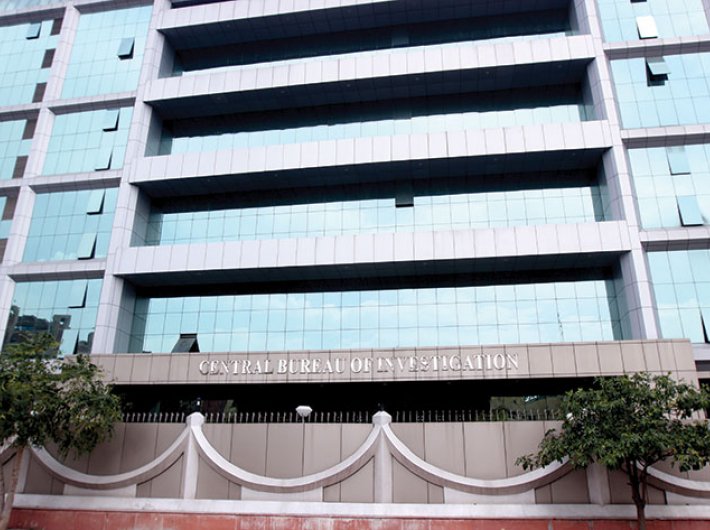Skeletons, if kept in the cupboards of investigative agencies, are bound to tumble out much sooner than later. The Central Bureau of Investigation (CBI) is no exception. The corridors of the CBI headquarters in Lodhi Estate in Delhi have been stinking as hell as an internecine war is on within the agency.
And the destruction of the institution is fairly assured. The latest missive to the Central Vigilance Commission (CVC) by a touring CBI director Alok Varma asserting his supremacy and objecting to the induction of IPS officials in the CBI in his absence is only the latest in a series of such run-ins he has had with his number two, joint director Rakesh Asthana, and the CVC. Only two months back, officers at the level of DIG and joint directors were removed much against the wishes of Varma. His objection to the CVC meeting for induction of fresh officers in his absence (Varma is on tour abroad) is seen as retaliation against Asthana who is expected to represent the agency in the head’s absence.
This ongoing battle which is quite akin to a gang war began soon after Varma took over as the CBI director and tried to induct certain officials into the agency. Special director Asthana, a Gujarat cadre IPS officer who had also officiated as acting director before Varma’s appointment as full-time director, is learnt to have resisted the induction and pointed out dubious antecedents of those officers. Though regarded as an efficient officer who investigated the fodder scam involving Lalu Prasad, Asthana is usually frowned upon by his colleagues within the agency for throwing his weight around on account of his perceived proximity to the Gujarat BJP leadership.
Though the postings in the CBI got stalled, a war had begun. The CBI was flooded with complaints about Asthana on the basis of certain mysterious documents and a diary seized by the Enforcement Department (ED) which works under the finance ministry and is headed by another Delhi cadre IPS officer, Karnail Singh. In this case, Varma and Singh appear to be acting in tandem.
Particularly glaring is the vertical division that the fight in the top echelons has ensued in the CBI. And all the skills acquired by top sleuths and their juniors to fight the underworld in the police training are being brazenly deployed against one another. Officers are being used like pawns and sacrificed by both the sides giving an impression of an unprecedented drift in the CBI. The fact that a powerful government headed by Modi is unable to contain it is an enigma wrapped in a mystery.
Perhaps nobody knows it better than Modi as to what extent an uncontrolled and criminalised CBI would subvert the government’s agenda. During the UPA regime, the agency was used not only to settle political scores with Modi in Gujarat but also fictitious cases were made up against BJP president Amit Shah and some state officials. Under the protective umbrella of the UPA government, the CBI tried to pressurise Shah to give a false confession about Modi’s involvement in the encounter killing of Sohrabuddin Sheikh in 2005. That Shah steadfastly refused to succumb to the pressure is a testimony to his fortitude and his commitment to Modi.
That was not the only case the CBI used to put the Gujarat government on mat. In the police encounter that killed Ishrat Jehan and her accomplices in 2004, the CBI made every effort to bring the political leadership of the state under investigation. Despite the fact that the operation was planned by and executed under the supervision of the Intelligence Bureau (IB), the CBI perfectly acted as the cat’s paw for the Congress government. Insiders in the government during those times would testify that Ahmed Patel’s residence had then become a veritable CBI headquarters where top sleuths would get together to devise strategies to enmesh the Gujarat political leadership.
This trend continued till it became evident that Modi had a strong possibility of becoming the prime minister. The new emerging political equations prompted the CBI bosses to halt the vendetta-like probe against Modi-Shah duo. However, like a tiger that never changes his spots, the CBI found its influence in a grey political space as quite gratifying. Over the years, the agency seemed to be enjoying the spotlight it got in investigating scandals involving top politicians, bureaucrats and at times even members of the judiciary. A section of the agency’s top officers developed the notion of influencing the political discourse by making selective leaks to activist-lawyers. In essence, it would not be wrong to say that the CBI at times has assumed a role which is nothing short of a ‘deep state’ or a ‘parallel state’.
Interestingly, this syndrome has afflicted not only the CBI but also the ED in equal measure. Look at the manner in which the agency has been fighting with its boss, finance secretary Hasmukh Adhia, an officer known for his unimpeachable integrity and efficiency. Like in the last days of the UPA government, the late-night secret meetings between top sleuths of these agencies and their political protectors have begun in right earnest to devise strategies to perpetuate the influence of the ‘deep state’.
It would be not wrong to paraphrase Shakespeare and say, “Something is rotten in the state of Indian bureaucracy.” If Modi as one of the most powerful prime ministers India has ever seen cannot tackle it, the malaise would ultimately cripple the body politic.

